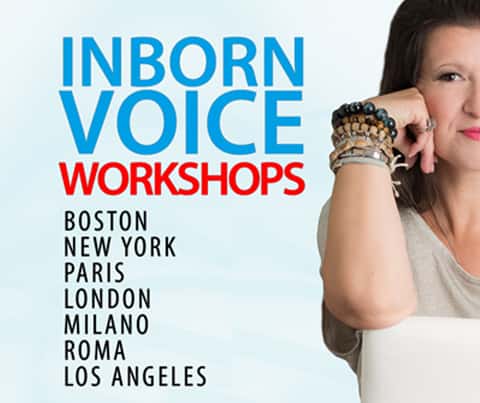Stage fright and speech anxiety: what it is and how to overcome it
Anyone can experience a “stage fright” which is the fear of facing an audience or public.
What was once referred to as “stage fright” or “rookie panic,” today is referred to as “microphone panic” because it is an element that usually connects all of these events.
It happens all the time to actors, singers and entertainment professionals, even those who don’t even have to speak, like dancers or extras.
It is something that has existed since the dawn of time: we can read of similar episodes already in the accounts of the ancient Greeks and Romans, the “creators” of Theater and Oratory.
Every artist has faced this problem at least once in his or her career. In fact, as Mylena Vocal Coach says, stage fright goes hand in hand with the desire to express oneself and communicate in the best possible way.
Stage fright: causes, effects and consequences
The peculiarity of stage or microphone fright is that it presents its symptoms before, during and after the event that worries us.
This feeling of unease is caused by the worry of having to express oneself or
one’s ideas in front of someone.
It all starts with unpleasant feelings such as:
- anxiety;
- lightheadedness;
- lapses in memory;
- cold sweats.
The more you pay attention to the symptoms, the more you get into a spiral of feelings that gets worse and worse faster.
Typically before or during the performance we realize that there is a temporary lapse of memory, that some technical element is not responding properly (the computer, the microphone itself, the lights) or we feel something unexpected from the audience.
Whatever the spark, it starts a spiral that leads to fueling anxiety, which in turn increases memory lapses or agitation, which returns to increase anxiety and so on.
It seems like an endless cycle that leads some people to “freeze,” even for a few minutes.
Famous examples of stage fright
One of the most famous examples, also recounted in Mylena Vocal Coach’s book “The Way of the Voice” is that of Barbra Streisand who took almost 30 years to overcome a big “stage fright” trauma during a live performance.
Like her, many other artists have not performed in public after one of these shocking events.
Clearly these are borderline cases, the vast majority of people overcome it by dealing with the Inborn Voice method.
How to overcome the fear of the microphone
The modern age leads us to label anything that is not “normal” with a medical term. When it comes to microphone and stage fright, we talk about “glossophobia” (fear of public speaking).
Many people resign themselves to the diagnosis, some even go so far as to mention “genetic” causes, but here at Inborn Voice we feel differently.
The origin of this fear is to be found within the fear itself and the solutions to overcome it vary from person to person, depending on the personality.
What is important to emphasize is that drugs or sedatives are not helpful. These types of substances can easily lead to the opposite result as the feelings of lightheadedness and memory lapses, previously linked to anxiety, are now also linked to these chemical factors.
Neither is the help of shrinks and the like needed, as knowing the reasons for a “fright” will only lead to increased fear of its recurrence.
5 tips to overcome microphone anxiety
- Learn to identify your emotions.
Fear is a primary emotion, don’t forget that.
The Inborn Voice method was created to help people express their emotions, so it is foolish to try to turn off fear.
You must learn to recognize the other emotions that are there, so that they take on an appropriate importance to balance and even overcome that of fear. - Relate anxiety to consequences
Instead of focusing on the growing panic, if you still cannot recognize the other emotions, try to ask yourself what would be the real consequences of not completing all the work you have prepared so far.
Then you are likely to be able to reignite the spark of positivity. Clearly, an Inborn Voice training session will help you immensely in recognizing and managing all the deep emotions. - Keeping in the present moment
Microphone fear is linked to projecting ourselves into a future that we cannot know, where we imagine situations far more catastrophic than those that could realistically happen.
It is something unreal, created by the mind based on wrong information.
Try to spend the time before your face-to-face with the microphone dedicating yourself to what you can actively and really do in the present moment, i.e. reviewing the speech you are going to give. - Build self-confidence
Refusing to be defeated by your own fears and anxiety is great feedback for anyone and leads to increased self-esteem.
Try to remember all the previous times you have faced similar feelings and fears with positive results.
With the boost coming from your Inborn Voice, the many small personal successes you will achieve through your renewed communication skills will add up to make you a better person. - Look for help from an Inborn Voice vocal coach (not a psychoanalyst or a doctor)
Experience in these situations is everything. The experience of the coach is fundamental: Mylena Vocal Coach can boast more than 30 years of international experience, but the experience that you will build, step by step, day by day, is just as important.
Many artists have chosen to contact the wrong professional and have ruined their careers and their lives by turning to palliative solutions such as alcohol or other “narcotic” substances.
The Inborn Voice Method for Overcoming Stage Fright
Speaking is always something emotionally involving, as Mylena Vocal Coach says “Inborn Voice is power”. Few people are aware of this.
Mostly you become aware of it when you talk about a topic other than yourself to people you don’t know. That’s why the Inborn Voice method goes through your deep emotions to sculpt your identity and your “personal brand”, to make you a better person, a good speaker or actor.
We also remind you that the voice is born with breathing. Adequate and free breathing is fundamental to feel at ease when speaking in front of a microphone or an audience and it is also essential to manage and regulate all the emotions that will rock your body.
The Inborn Voice method will help you unlock all the holdouts and fears, even the most unknown, that prevent you from expressing yourself freely through your voice.
Take the first step!
We offer world-class training to improve your personal, social and business communication skills. We specialize in presentations, leadership, media training, interviewing and Executive speaking.
Inborn Voice shapes tomorrow's leaders.
Book your first online Voice Assessment session by clicking the button below!
Any questions? We'll get back to you!
Are you looking to improve your voice with individual lessons, classes, or have any questions?
Fill out the form below!
and Mylena Vocal Coach:
Leave a Comment








One Comment
Thank you I have appreciated reading it